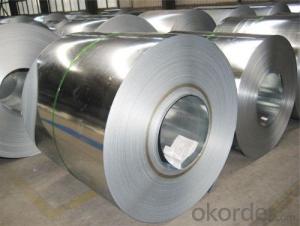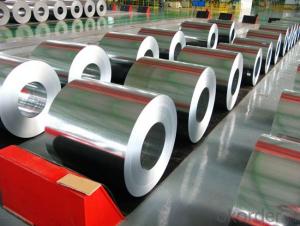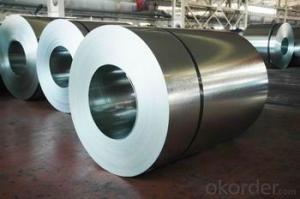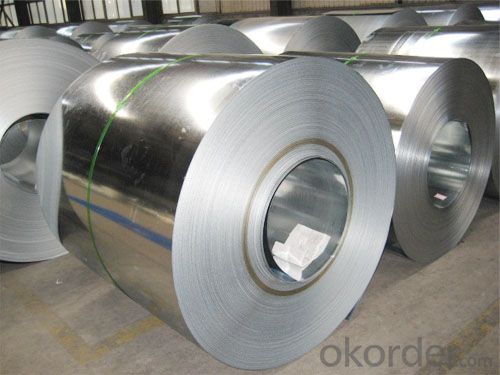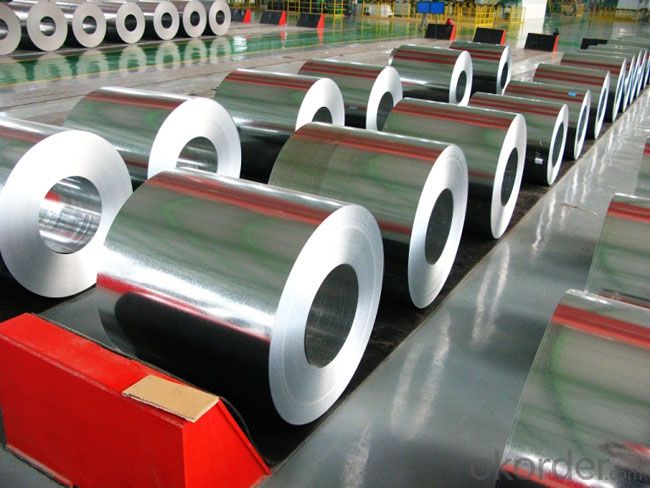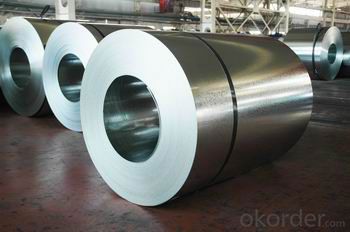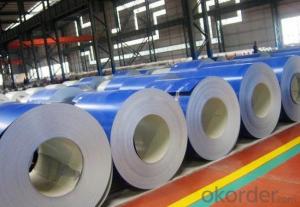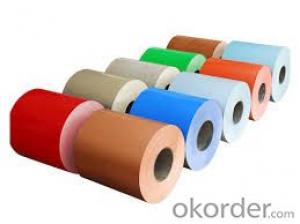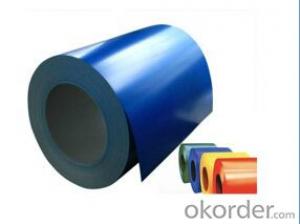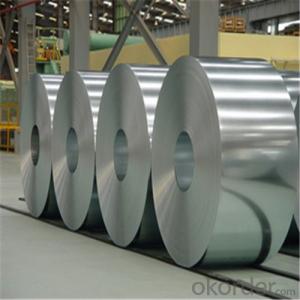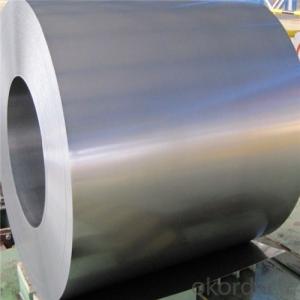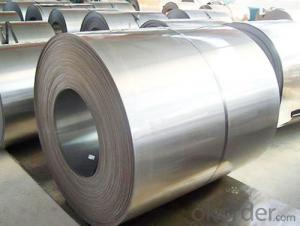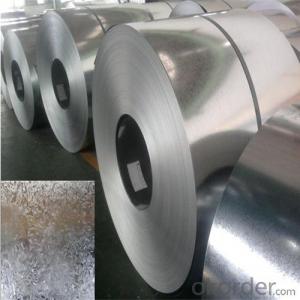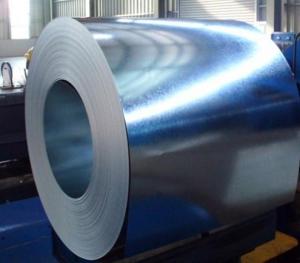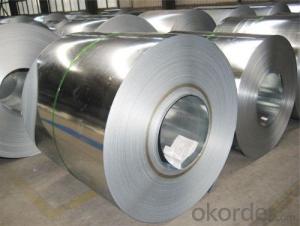Hot-Dip Galvanized Steel Coil Used for Industry with No.1Quality
- Loading Port:
- Shanghai
- Payment Terms:
- TT or LC
- Min Order Qty:
- 25 m.t.
- Supply Capability:
- 8000 m.t./month
OKorder Service Pledge
OKorder Financial Service
You Might Also Like
Hot-Dip Galvanized Steel Coil Used for Industry
1.Structure of Hot-Dip Galvanized Steel Coil Description
Hot-dip galvanized steel coils are available with a pure zinc coating through the hot-dip galvanizing process. It offers the economy, strength and formability . The hot-dip process is the process by which steel gets coated in layers of zinc to protect against rust. It is especially useful countless outdoor and industrial applications.
2.Main Features of the Hot-Dip Galvanized Steel Coil
•High Purity
•Easy control and operation
•High strength
•Fast melting
•Competitive price
•Best Service
3. Hot-Dip Galvanized Steel Coil Images
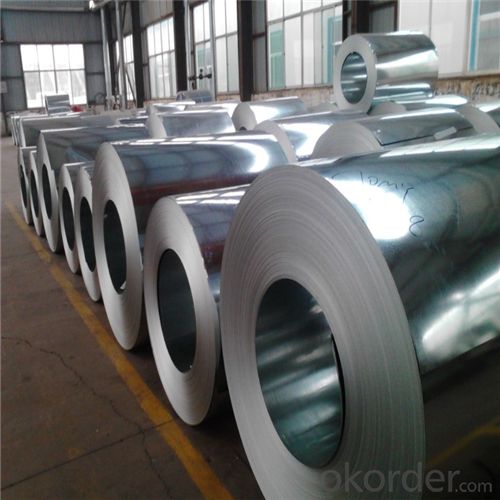
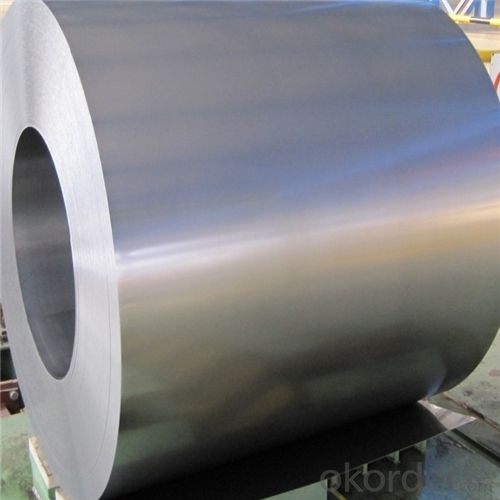
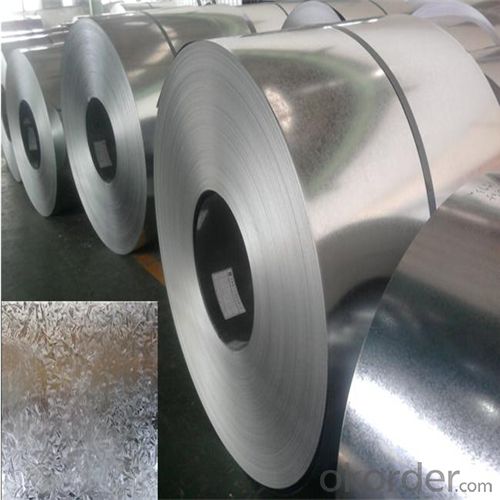
4. Hot-Dip Galvanized Steel Coil Specification
Hot-Dip Galvanized Steel Coil | |
Thicknenss | 0.10mm-5.00mm |
Width | 2000mm max |
Coating mass | 30-600g/㎡ |
Spangle | Regular/Minimized/Zero Spangle |
Coil inner diameter | 508-610mm |
Surface treatment | Chromated/non chromated, Oiled/non oiled, Anti finger print |
5.FAQ of Hot-Dip Galvanized Steel Coil
We have organized several common questions for our clients,may help you sincerely:
①How about your company?
Annually more than 8000 tons Precision casting and forging parts are exported to markets in Europe,America and Japan. OEM casting and forging service available according to customer’s requirements.
②How to guarantee the quality of the products?
We have established the international advanced quality management system,every link from raw material to final product we have strict quality test.
③How long can we receive the product after purchase?
Commonly 7 to 10 working days can be served.
- Q: Hello,is it possible to divide an alloy in its own elements? I am particularly interested in Stainless Steel, which is made of Nickel, Chrome and Iron. Do you have an idea of where can I find some more information (blogs, reviews, sites or books)?Thanks for your help
- Yes it is possible to recover individual elements from an alloy such as stainless steel, but not easy. Look up etching of stainless steel on google. This same etching solution will completely dissolve stainless steel. These solutions are strong acids such as H2SO4 and HNO3 so safety goggles and good ventilation are absolutely required. Once the metal has been dissolved, then you would need to use a qualitative analysis scheme to precipitate out the different metals one at a time as compounds, then do additional reactions to recover the metallic elements.
- Q: What is the cost of a steel coil?
- The cost of a steel coil can vary depending on factors such as the type and grade of steel, the size and weight of the coil, and market conditions. It is best to contact a supplier or manufacturer for accurate pricing information.
- Q: How are steel coils inspected for bendability?
- Steel coils are inspected for bendability using a variety of methods to ensure their suitability for various applications. One common inspection method is the 3-point bend test, where the coil is subjected to a bending force at three specific points along its length. This test helps determine the coil's resistance to bending without fracturing or breaking. During the 3-point bend test, the coil is placed on a support system with two fixed points and one movable point. A force is then applied to the movable point, causing the coil to bend. The amount of force required to achieve a specific level of bending is measured and compared against acceptable standards. Another method used for inspecting steel coils is the mandrel bend test. In this test, a mandrel of a specific diameter is inserted into the coil and bent to a specified angle. The coil is then examined for any signs of cracking or deformation. This test helps determine the coil's flexibility and ability to withstand bending without damage. Visual inspection is also an important part of the inspection process. Trained inspectors visually examine the coil for any visible defects such as cracks, deformations, or irregularities. They also check for proper coil dimensions and uniformity throughout. In addition to these methods, non-destructive testing techniques like ultrasonic testing or magnetic particle inspection may be used to detect any internal defects or flaws that may affect the bendability of the coil. Overall, a combination of mechanical testing, visual inspection, and non-destructive testing methods are employed to ensure that steel coils meet the required bendability standards. These inspections help ensure the quality and reliability of the steel coils for various industries where bendability is a critical factor.
- Q: How do steel coils contribute to the agricultural sector?
- Steel coils contribute to the agricultural sector in various ways. Firstly, steel coils are used in the manufacturing of agricultural machinery and equipment such as tractors, harvesters, and irrigation systems. These machines are essential for efficient farming operations, helping farmers increase productivity and reduce labor costs. The strength and durability of steel coils ensure that the machinery can withstand the harsh conditions of the agricultural environment. Additionally, steel coils are used in the construction of storage facilities and warehouses for storing agricultural products. These structures need to be strong and resistant to external elements to protect the crops from damage. Steel coils provide the necessary strength and stability required for constructing these storage facilities, ensuring the safe storage of agricultural produce. Furthermore, steel coils are used in the fabrication of fencing and other agricultural infrastructure. Fencing is crucial in protecting crops from animals and preventing trespassing. Steel coils provide a robust material for fencing, ensuring the security and protection of agricultural lands. Moreover, steel coils are utilized in the production of irrigation pipes and systems. Efficient irrigation is vital for the growth and yield of crops, especially in areas with limited water resources. Steel coils are used to manufacture pipes that can withstand high pressure and are resistant to corrosion, ensuring the efficient distribution of water throughout the agricultural fields. In summary, steel coils play a significant role in the agricultural sector by providing the necessary materials for manufacturing machinery, constructing storage facilities, fencing, and irrigation systems. The strength, durability, and resistance to harsh conditions make steel coils an essential component in enhancing agricultural productivity, protecting crops, and ensuring efficient farming practices.
- Q: How are steel coils protected against moisture and humidity?
- Steel coils are protected against moisture and humidity through a variety of methods. One common method is the application of a protective coating on the surface of the steel. This coating acts as a barrier, preventing moisture from coming into direct contact with the steel surface. Coatings can be made of various materials such as paint, zinc, or other corrosion-resistant substances. In addition to coatings, steel coils are often wrapped in a moisture-resistant material such as plastic or waxed paper. This wrapping provides an extra layer of protection, preventing moisture from seeping into the coils during storage or transportation. Furthermore, steel coils are typically stored in a controlled environment with controlled humidity levels. This helps to minimize the chances of moisture condensation on the surface of the coils. Storage facilities may also utilize dehumidifiers or other moisture control measures to maintain optimal conditions. Lastly, proper handling and transportation practices are crucial in ensuring the protection of steel coils against moisture and humidity. Special care is taken to avoid exposing the coils to rain or excessive humidity during loading, unloading, and transportation processes. By employing these various protective measures, steel coils can be effectively safeguarded against moisture and humidity, reducing the risk of corrosion and maintaining their quality and integrity.
- Q: How are steel coils used in the manufacturing of signage?
- Steel coils are used in the manufacturing of signage as they provide a strong and durable base for creating various types of signs. These coils are typically cut, shaped, and welded to form the desired sign structure. The steel material ensures that the signage can withstand outdoor conditions, including extreme weather, while maintaining its structural integrity. Additionally, steel coils can be easily painted or coated to enhance the visual appeal of the signage and protect it from corrosion.
- Q: How are steel coils used in the production of metal shelving?
- Steel coils are used in the production of metal shelving by being processed and formed into the desired shape and size. The coils are unwound and then either cut or shaped using various techniques such as bending, welding, and punching. This allows for the creation of sturdy and durable shelves that can hold heavy loads.
- Q: How are steel coils used in the construction of buildings?
- Steel coils are used in the construction of buildings primarily for their strength and durability. These coils are typically formed into beams, columns, and other structural components, providing a sturdy framework. Additionally, steel coils can be shaped into sheets or plates used for roofing, walls, and flooring, offering excellent resistance to weather and fire. Overall, steel coils play a crucial role in ensuring the stability and longevity of buildings.
- Q: What are the dimensions of steel coils used in the metal container industry?
- The dimensions of steel coils used in the metal container industry can vary depending on the specific application and requirements. However, common dimensions for steel coils used in this industry range from 0.5 to 3.5 millimeters in thickness and 600 to 2,000 millimeters in width. The length of the coils can vary based on the manufacturer and customer specifications.
- Q: How are steel coils tested for strength?
- Steel coils are typically tested for strength through a variety of methods, including tension, compression, and bending tests. These tests involve subjecting the coils to various levels of force to determine their resistance and ability to withstand pressure without deformation or failure. Additionally, non-destructive techniques such as ultrasonic or magnetic particle testing may be employed to detect any imperfections or weaknesses within the coils.
Send your message to us
Hot-Dip Galvanized Steel Coil Used for Industry with No.1Quality
- Loading Port:
- Shanghai
- Payment Terms:
- TT or LC
- Min Order Qty:
- 25 m.t.
- Supply Capability:
- 8000 m.t./month
OKorder Service Pledge
OKorder Financial Service
Similar products
Hot products
Hot Searches
Related keywords
